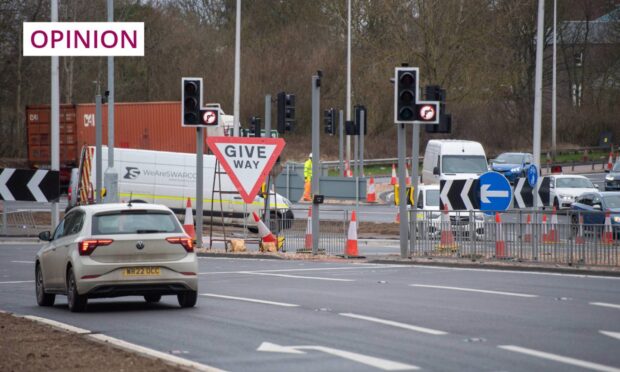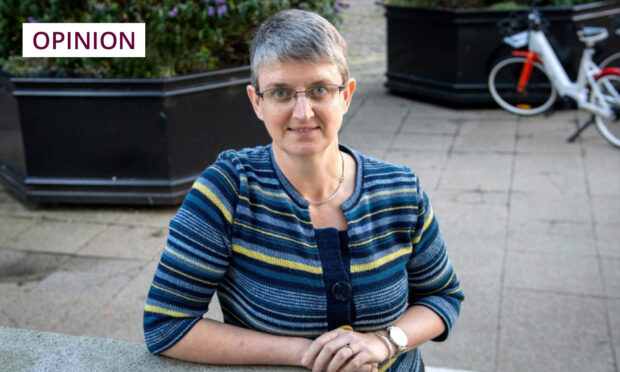SNP finance chief Shona Robison had an unenviable task as she set out the Scottish Government’s spending plans for the next year.
The Dundee MSP didn’t have to look far to see the sheer scale of the challenges before her as she drafted her latest budget.
At home in the City of Discovery, crises have been mounting.
The nationwide waiting list crisis is as critical an issue in Tayside as it is anywhere else in Scotland.
Elsewhere, a £30 million budget deficit at the University of Dundee has left staff heading into the festive season terrified for their jobs.
One senior manager even warned that without swingeing cuts the university could even be forced to close within two years.
It isn’t the only at-risk city institution.
Dundee Contemporary Arts (DCA) is said to facing an “existential threat” to its future.
All of these are issues covered extensively in The Courier.
Ms Robison has clearly been reading the newspaper as she determined her priorities.
She reeled off a list of investments in key areas across the public sector, where their finances have been stretched to breaking point.
NHS spending will rise to record levels, with Scotland’s frontline health services receiving their share of a £2 billion increase in funding.
Will university cash help Dundee?
Universities – including Dundee – will benefit too as the government plans a 3.5% increase in total higher education investment.
Whether it solves the university’s money worries or only reduces the amount of savings required remains to be seen.
And Culture funding will be increased by £34 million, significantly more than the £25 million rise that many in the sector had been hoping for.
Of course, as is usually the case with ambitious political pledges, the devil will be in the detail.
Already some of Mr Robison’s commitments have struggled under scrutiny.
12-month promise of little comfort to those languishing on waiting list
She promised that by March 2026 no patient will wait more than 12 months for a new outpatient appointment, inpatient or day case treatment.
But this will offer little comfort for the nearly one million Scots who are suffering as they wait for treatment.
The Scottish Government’s treatment time guarantee already says they have a legal right to treatment within 12 weeks.
The SNP should not celebrate this new, downgraded, 12-month waiting time commitment. It is a clear failure of government. Meeting this new target will only start to undo some of the damage.
Those at the top of government seem to understand this.
One senior SNP source agreed but said the government was still attempting to re-build trust.
“No one wants to see unrealistic targets,” they said, explaining that through “hope and delivery” they hoped the SNP government would regain the trust of ordinary Scots.
The £34 million investment in culture funding has been cautiously welcomed in the city.
Will culture cash prevent “existential threat” facing DCA?
Whether it will ensure DCA can avoid brutal cuts to it programming remains to be seen. At least for now, the focus moves to arts agency Creative Scotland.
Director Beth Bate told me: “We’re pleased to see an uplift for Creative Scotland, but it’s not yet clear how this amount corresponds to the total ask of the multi-year funding fund.
“We will need to wait for Creative Scotland’s funding announcements in January to find out what this means for DCA.”
A budget that ticks many boxes
Under Nicola Sturgeon, the Scottish Government often focused on a single headline-grabbing promise that would require huge investment.
Many of these Sturgeon-era pledges – such as the introduction of a National Care Service – have now been put on ice.
Those close to First Minister John Swinney say his influence can be seen how the latest government spending plans look to balance competing demands.
“There’s something there for the NHS, something for education,” one said. “That’s John Swinney’s influence.”
Asked to point to a single part of the spending plans which makes this a “John Swinney budget”, one insider said it was to commitment to scrap the two-child benefit cap.
“It’s comes at a price,” the source said, but highlighted that Mr Swinney had set out how tackling child poverty was his top priority on taking office.
Ms Robison said action to mitigate the cap – which means families can only claim some benefits for their first two children – will lift 15,000 youngsters out of poverty.
By 2029-30, it’s estimated that mitigating the cap will have cost around £200 million.
“It’s comes at a price,” the source said. “But he made tackling child poverty his top priority.
“Humza Yousaf never did this. Nicola Sturgeon never did this.”















Conversation